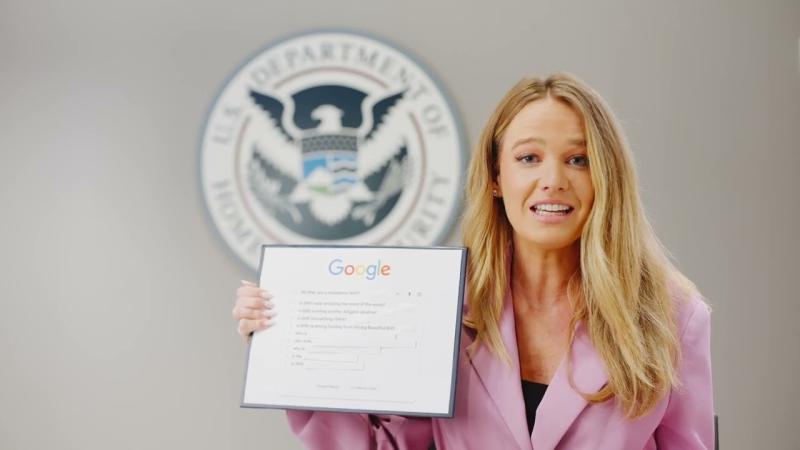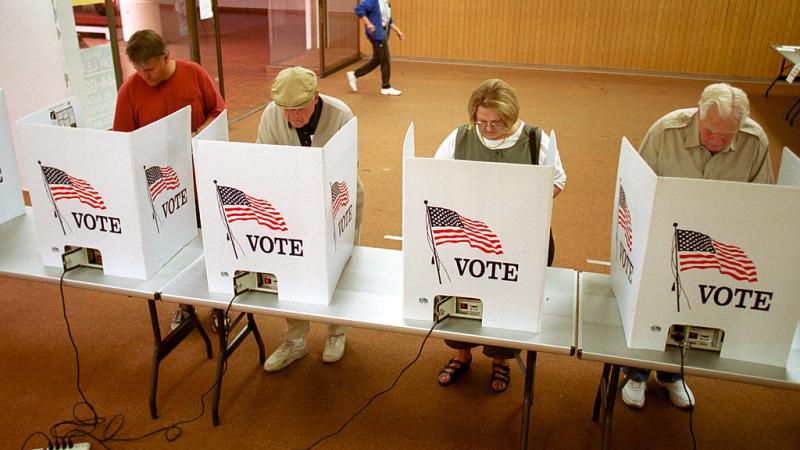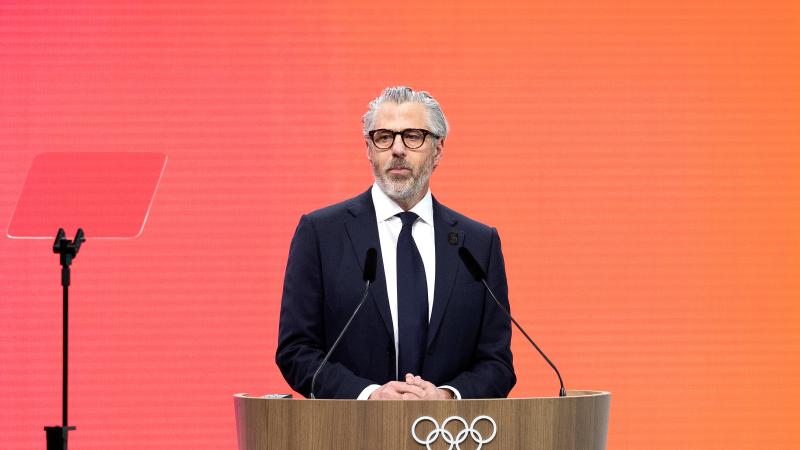'Rubber stamp' vaccine advisory board fired by RFK Jr. for conflicts of interest has revealing past
CDC's Advisory Committee on Immunization Practices once recommended vaccine after official admitted it had no data on simultaneous inoculation, but "our general approach" is to give vaccines at "same time in different limbs."
A federal public health advisory panel long dominated by pharmaceutical influence, whose expressed reservations about particular inoculations never stopped it from recommending them, is getting a fresh start under the drug industry's most powerful critic.
Health and Human Services Secretary Robert F. Kennedy Jr. announced Monday the removal of all 17 members of the Advisory Committee on Immunization Practices, which advises the Centers for Disease Control and Prevention, citing "persistent conflicts of interest" that made it "little more than a rubber stamp for any vaccine."
Some of the current members were "last-minute appointees of the Biden administration" whose presence would have kept President Trump from appointing new members until his last year in office, Kennedy wrote in a Wall Street Journal op-ed.
"It has never recommended against a vaccine – even those later withdrawn for safety reasons," like the rotavirus vaccine it greenlit despite half of ACIP members having financial ties to other rotavirus vaccine makers, he said. "It has failed to scrutinize vaccine products given to babies and pregnant women" and meets behind closed doors with other groups.
ACIP unanimously approved adding COVID vaccines to child and adolescent schedules in fall 2022, months after the CDC ignored it when approving a fourth mRNA shot for older people.
The sudden move came a day after medical freedom activist and physician Mary Bowden, who forced the Food and Drug Administration in court to stop demonizing ivermectin for COVID treatment, noted that 11 of the 15 members who put COVID-19 vaccines on the pediatric schedule two years ago were still on the committee as of Sunday.
FDA Commissioner Marty Makary told a reporter Tuesday the "clean sweep" of ACIP, as Kennedy called it, did not involve him and that Makary would defer to FDA Center for Biologics Evaluation and Research Director Vinay Prasad on the composition of its own Vaccines and Related Biological Products Advisory Committee (VRBPAC.)
While Kennedy's move furthers a mainstream media and medicine caricature of the vaccine skeptic – he had already created a page with ACIP's alleged conflicts of interest in March – it doesn't neatly fit with his early months as HHS secretary.
In quick succession last month, Kennedy removed COVID vaccines from the CDC's immunization schedule for healthy children and pregnant women, cancelled a $700 million Moderna bird flu vaccine contract and approved Moderna's new COVID vaccine but only for ages 65 and up and those at risk for "severe" COVID outcomes.
Moderna must complete a randomized controlled trial in healthy Americans ages 50-64 if it wants vaccine approval in that demographic, Prasad said at the time, though COVID vaccine trial victim and activist Brianne Dressen faulted the study design for "heavily limiting patient reported data," which she said means it won't capture severe adverse events.
Recommended a vaccine with 'no data' on interactions with others
Kennedy's op-ed said the CDC "took no significant action" after an HHS inspector general report from 2009 found that 97% of ACIP members had "omissions" on their conflict-of-interest forms.
That was nine years after a House investigation found ACIP and VRBPAC had "weak to nonexistent" enforcement of conflict-of-interest rules, he said. "Committee members regularly participated in deliberations and advocated products in which they had a financial stake" and the CDC gave everyone waivers.
The ACIP clipping drew cheers from some vaccine skeptics, drug industry watchdogs and a veteran chronicler of ACIP and VRBPAC, while horrifying mainstream medical organizations including the vaccine maker-funded American Academy of Pediatrics, which said it will "further endanger the health of the American public, especially children."
Brownstone Institute President Jeffrey Tucker circulated a condensed clip from ACIP's February 21, 2018 meeting that shows advisers unanimously approving a recommendation for an adjuvanted hepatitis B vaccine — containing an ingredient that enhances immune response — despite agency officials being unable to answer some questions.
One official admitted they have "no data" on using that vaccine "with other adjuvanted vaccines" such as for flu and shingles, and another said the agency was unaware of any other market using "multiple adjuvanted vaccines."
"Whilst pre-clinical studies were not done using these vaccines simultaneously, our general approach to immunizations is they should be given, they can be given at the same time in different limbs," another official said.
After approval, an adviser said he had a "slight reservation" about his vote due to the "myocardial infarction [heart attack] signal" from the use of the new adjuvant in the vaccine and said they needed to look at "post-marketing data carefully." The CDC likely wouldn't have that data for more than two years, an official responded.
"All but one ACIP member voted for universal [COVID-19] boosting even for young men with the highest myocarditis risk as late in the pandemic as fall 2023," Emily Kopp, former investigator for nonprofit public health research group U.S. Right to Know, wrote on X. "If you were evaluating on performance, you’d fire them."
That member was Pablo Sanchez, who warned colleagues their recommendation rested on "extremely limited data on children and infants and other individuals" that was also hidden from parents, and they should be more concerned about "potential side effects, especially in young adults and in young adult males."
Former FDA regulatory review officer Jessica Adams, who has long chronicled its advisory committees and criticized the Biden administration's FDA for sidelining its own vaccine leaders and advisers on COVID boosters, recommended Sanchez and other lone voices for ACIP.
She praised former VRBPAC members Cory Meissner, who early warned of vaccine-induced myocarditis in young people, for saying the advisers need to convey to parents COVID's miniscule risk to children, and Michael Kurilla for abstaining from a pediatric authorization vote on the basis that even a successful vaccine would quickly wane for the low-risk group.
'Get over this political statement'
ACIP and VRBPAC gave a patina of independent review to the genetic-code delivery systems for SARS-CoV-2 spike proteins that officials deemed vaccines, and skeptics became unrelenting targets of ridicule, contempt and punishment by the most powerful figures in America.
Dr. Anthony Fauci, then-director of the National Institute of Allergy and Infectious Diseases, famously equated himself with science and told resisters to "get over this political statement" and "save the lives of yourself and your family.” Over 8,400 U.S. military service members were discarded for vaccine refusal and private businesses fired them.
One of the few lawmakers to systematically push back on the narrative was Sen. Ron Johnson, R-Wis., who held a nearly five-hour "second opinion" roundtable with doctors, scientists and medical experts three years ago. He said the CDC, FDA, National Institutes of Health and vaccine makers refused his invitation.
Dr. Robert Malone, mRNA pioneer-turned-critic, emphasized vaccine development was rushed and that mandates ignored adverse events. Dr. Peter McCullough, former vice chief of internal medicine at Baylor University Medical Center, estimated 80% of attendees experienced some type of censorship or intimidation for their criticism or skepticism of the vaccines.












